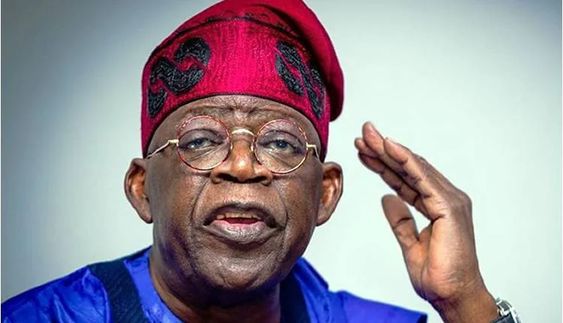Editorial
Economic Strategy Under President Tinubu’s Administration

The nation’s economic stability and prosperity are among the most urgent concerns it must address as it ushers in a new era with President Bola Ahmed Tinubu in charge. Nigeria, dubbed the “Giant of Africa,” is home to a sizable and youthful population as well as a wealth of natural resources. It has, however, had to deal with a number of economic issues, such as falling oil prices, unemployment, and infrastructure shortfalls. To solve these issues and realise the full economic potential of the country, President Tinubu’s administration has begun to implement a comprehensive economic strategy. Examined in this article are the main tenets of President Tinubu’s economic policy for Nigeria.
the economy’s diversification
The diversification of Nigeria’s economy is one of President Tinubu’s top economic goals. Because Nigeria’s economy has historically been dependent on oil profits, it has been subject to changes in the price of crude. The government is actively supporting industries like agriculture, manufacturing, technology, and services to lessen this susceptibility. Nigeria may lessen its reliance on oil by diversifying its economy, which will also help to make the country’s economy more stable.
Infrastructure Development
A key part of Nigeria’s economic growth strategy is infrastructure development. By making investments in energy infrastructure as well as roads, bridges, ports, and trains, the Tinubu administration is dedicated to resolving the nation’s infrastructure deficit. The generation of jobs and foreign investment are two additional benefits of improved infrastructure.
Young people’s empowerment and job creation
Nigeria’s population is young, which, if correctly utilised, might be a demographic benefit. The administration of President Tinubu understands how crucial it is to empower young people and create jobs. Aiming to give young people access to job opportunities, entrepreneurship help, and skill development, programmes like the Youth Empowerment and Job Creation Programme Nigeria may take advantage of its young population’s potential to spur economic growth by making investments in its human capital development.
Farming-related investment
With millions of people employed, agriculture is still a big industry in Nigeria. The administration of President Tinubu is attempting to modernise agriculture, boost productivity, and strengthen value chains. For instance, the goal of the Green Revolution Initiative is to increase irrigation, enhance agricultural methods, and increase food production. These measures are vital for ensuring food security and lowering the country’s dependency on food imports.
Funding for Innovation and Technology
Technology and innovation have become more and more important drivers of the global economy. The Tinubu administration is fostering the growth of a strong technological ecosystem in Nigeria in light of this. Programmes like the Tech Hubs and Innovation Centres programme promote startups and tech-driven businesses while promoting entrepreneurship and luring in international investment.
Measures to Combat Corruption and Financial Responsibility
The administration is dedicated to practising sound financial management and taking anti-corruption measures to ensure the success of its economic agenda. A favourable investment environment and the upkeep of public trust depend on prudent budgetary measures, accountability, and openness.
Trade and Investment on a Global Scale
The administration of President Tinubu takes a proactive role in developing business relationships abroad. Nigeria may access new markets, technology, and finance through pursuing international investment and enhancing trade ties. Additionally, efforts are made to draw in foreign investors by making doing business in Nigeria easier.
The administration of President Tinubu has outlined a bold economic strategy to address Nigeria’s problems and realise its enormous potential. Nigeria strives to promote sustainable economic growth and lessen its sensitivity to outside shocks by diversifying its economy, spending on infrastructure and human capital, advancing agriculture and technology, and upholding fiscal restraint. Partnerships in international trade and investment boost these efforts even more. In the years to come, Nigeria’s status as a significant player in the African and global economies will be largely dependent on the success of this economic plan.
